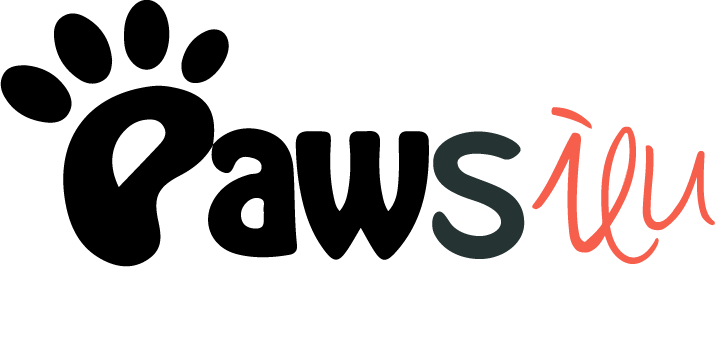Table of Contents Show
Deer Head Chihuahuas, characterized by their distinctive deer-like head shape and spirited personality, have charmed dog enthusiasts for generations. They are a variant of the popular Chihuahua breed, adored for their intelligence, loyalty, and high energy levels. Although not officially recognized as a separate breed, these petite yet resilient dogs have unique traits that set them apart. This guide aims to explore the fascinating world of Deer Head Chihuahuas, delving into their origins, characteristics, health, and care and highlighting what makes them such delightful companions.
Not an Official Breed:
Despite their distinctive look and temperament, Deer Head Chihuahuas aren’t officially recognized as a separate breed by kennel clubs. They’re considered a variety of the Chihuahua breed, highlighting the diversity within this beloved dog breed.
Distinct Appearance:
The name “Deer Head” derives from the dog’s elongated, deer-like head shape. Unlike their Apple Head counterparts, which have rounder, dome-like heads, Deer Heads have a longer muzzle and sloping forehead, giving them a unique profile.
Size Variations:
Deer Head Chihuahuas are typically larger than the standard Chihuahua, weighing between 3-7 pounds. However, some individuals can reach up to 12 pounds, defying the common expectation of tininess in Chihuahuas.
Lifespan:
With a lifespan of 14 to 17 years, or even longer, with excellent care, Deer Head Chihuahuas is a long-term commitment. Their longevity is one of the many reasons they are cherished as pets.
Healthier Breed:
Compared to Apple Head Chihuahuas, Deer Heads are often healthier. They’re less prone to issues like brachycephalic syndrome (breathing difficulties due to a shortened snout) and hydrocephalus (a condition causing fluid buildup in the brain).
Origins:
Some enthusiasts believe that Deer Head Chihuahuas more closely resemble the ancient dogs found in Mexico before European colonization. This idea is based on ancient Mexican art and artifacts depictions, suggesting a longer, deer-like head shape.
Color Varieties:
These dogs come in a variety of colors, from fawn, chocolate, and black to white and more. The array of potential coat colors adds to their charm and individuality.
High Energy Levels:
Despite their small size, Deer Head Chihuahuas pack a lot of energy. They enjoy regular exercise through play, walks, or even agility courses. Physical and mental stimulation is key to their well-being.
Intelligent:
Deer Head Chihuahuas are known for their intelligence. This trait can be a double-edged sword, as it makes them quick learners but also capable of picking up bad habits if not properly guided.
Socialization:
Deer Head Chihuahuas can be wary of strangers. Early and ongoing socialization is essential to prevent shyness or defensive aggression, helping them grow into well-rounded, confident dogs.
Loyal:
Known for their loyalty, Deer Head Chihuahuas often form deep bonds with their owners. They tend to latch onto one person in particular, often becoming highly protective of their chosen favorite.
Weather Sensitivity:
Their small size and short coat mean Deer Head Chihuahuas don’t tolerate cold weather well. Warm clothing and indoor play during colder months can help keep them comfortable.
Dental Health:
Dental issues are common in many small dogs, including Deer Head Chihuahuas. Regular tooth brushing and dental chews can help maintain their oral health and prevent future complications.
Bold and Brave:
Don’t let their size fool you – Deer Head Chihuahuas are often bold and brave. They may not realize their small stature and will often face larger dogs without fear, showcasing their large-dog personality.
Good with Families:
Deer Head Chihuahuas can make great family pets when properly socialized and treated with respect. They enjoy being part of family activities and often thrive in multi-person households.
Not Always Great with Kids:
Due to their small size and sometimes sensitive temperament, Deer Heads can get anxious or defensive around very young or rough children. Older, respectful children often make better companions for these tiny dogs.
Adaptable:
Deer Head Chihuahuas are adaptable and can live comfortably in various settings. Whether in a large home with a yard or a small city apartment, they can thrive as long as they get enough exercise and attention.
Nutritional Needs:
Their small size dictates unique nutritional needs. Special diets formulated for small or toy breeds often meet their requirements best, focusing on high-quality protein for muscle health and controlled calorie content to prevent obesity.
Longer Legs:
Deer Head Chihuahuas often have longer legs compared to Apple Heads. This contributes to their deer-like appearance and gives them a taller stance, making them more agile and athletic.
Bark Tendency:
These dogs can be vocal, using their bark to communicate various needs or warnings. However, this trait can only develop with proper training into problematic excessive barking. Regular mental stimulation and training can help manage this tendency.
FAQs
Q: Are Deer Head Chihuahuas good family dogs?
A: They can make great family pets if properly socialized and treated with respect. However, their small size and sensitivity may only suit some young or rough children.
Q: How long do Deer Head Chihuahuas typically live?
A: Deer Head Chihuahuas have a long lifespan, usually 14 to 17 years, and sometimes even longer with good care.
Q: Are Deer Head Chihuahuas healthier than Apple Head Chihuahuas?
A: Generally, yes. Deer Head Chihuahuas are often healthier and less prone to specific breed-specific health problems compared to their Apple Head counterparts.
Q: Can Deer Head Chihuahuas live in apartments?
A: Yes, they’re adaptable and can live comfortably in various settings, including apartments, as long as they get enough exercise and attention.
What is the typical weight range for a Deer Head Chihuahua?
A: Deer Head Chihuahuas typically weigh between 3-7 pounds. However, some individuals can be larger, sometimes reaching up to 12 pounds.

